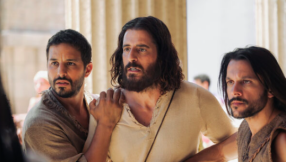Why men hate going to church
This may be an extreme example but it fits a trend. There is something about church that puts men off. Men in the pews are a minority. It’s not just a problem in the West. From Accra to Zanzibar women worshippers outnumber men.
Why? There will be a chance to air some of the issues this month. Milton Keynes-based Christian Vision for Men (CVM) is holding a day conference on 17 September with David Murrow, the Alaskan author who gained global prominence with a provocatively titled book, Why Men Hate Going to Church.
Murrow’s book is an entertaining read and is full of practical insights. He warns against cringe-making language like talk about “falling in love with Jesus”. He counsels the need for welcome, but cautions about being over-effusive. He says it’s worth transposing songs so male worshippers have a chance to hit the high notes. He thinks services should be shorter with preachers making their points succinctly and not repeating them.
Churches find most men prefer a practical project to a discussion group. I once led a home group with a man who began to come to church after retirement, having previously worked Sundays. He had a lot of catch-up learning to do and told me, “I used to sit in fear that you might ask me a question!” For my part I had worked out the last thing he wanted was to try to articulate in front of his wife.
My question, however, is whether Murrow is offering solutions that are largely cosmetic. I find that the big issue for men is whether Christianity is believable. I have a theory that the Great War (1914-18) was a watershed in the history of belief in Western culture. Many men went to war as believers and returned as agnostics or worse. They could find no credible answers to their questions about why so-called Christian nations went to war against each other.
Coinciding with this was the emergence of a neo-orthodoxy which, while it used traditional theological language, was without strong convictions that the underlying message was true and reliable. When preachers gave the impression the bible was unreliable or miracles could be explained away, men left the church in droves.
Eastern orthodoxy with long services and dogmatic certainty seems to be attracting men in significant numbers. They will stand for up for hours during the Holy Liturgy. All this is quite opposite to Murrow’s recipe for turning things around.













